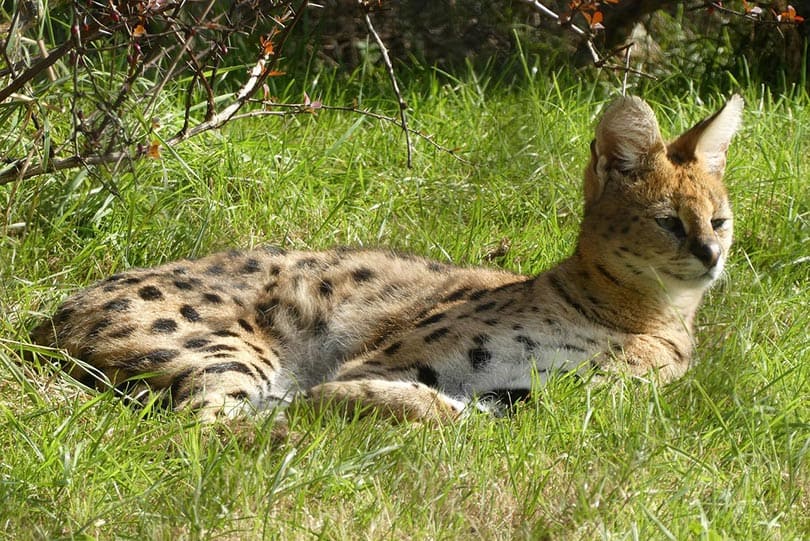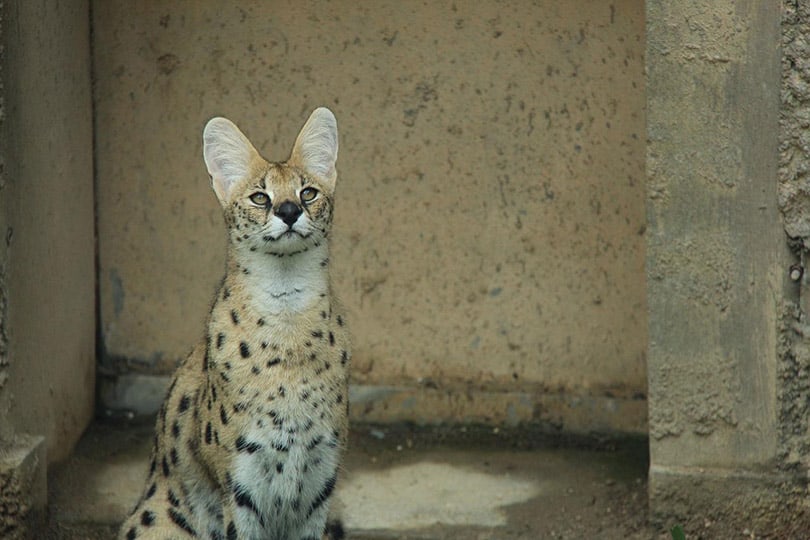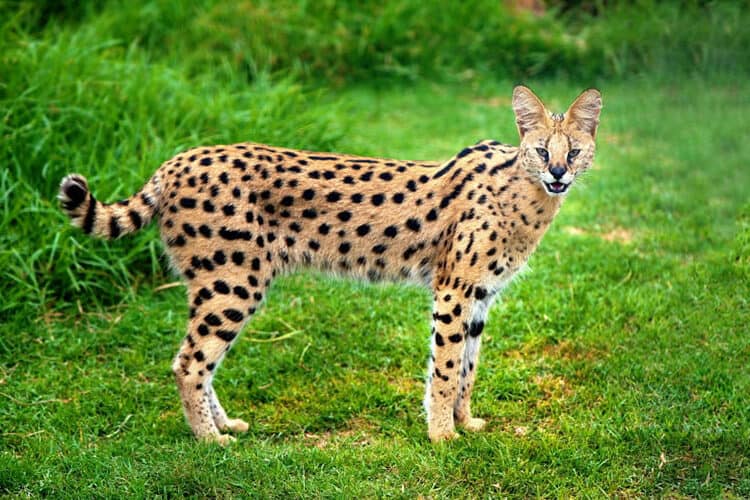Serval cats are not legal all over the USA and only certain states allow you to own one. Many of these states require a license of some sort, which costs varying amounts of money. In some states, it is technically legal to own one with a license. However, you often have to get approved, which can be challenging. Some states may not approve licenses except under very specific conditions.
Where Are Serval Cats Legal?
States that allow you to own a serval without a license are:
- Alabama
- Nevada
- North Carolina
- Wisconsin
There are several other states where you can get a license to own a serval:
- Texas
- Mississippi
- Missouri
- Oklahoma
- Indiana
- Pennsylvania
- Rhode Island
- Maine
- Montana
- Idaho
- North Dakota
- South Dakota
If your state is not listed, it is illegal to own a serval in your area. The punishment for owning a serval varies, but it can be quite hefty in some locations. Furthermore, many breeders will not adopt to states where it is illegal to own a serval.

Are Serval Cats Good Pets?
First and foremost, a serval is not a domesticated animal. While many consider it an exotic pet, these cats will not act like domestic house cats. They typically do not seek out human affection or return it. Therefore, they are usually not considered good pets.
There are also several risks and downsides involved with owning these animals. They need a very large area to run and play. Their exercise needs and instincts have not been cut down like most domesticated animals. Therefore, they practically need a zoo habitat to remain happy. These take up a lot of room and can get expensive.
You will need to feed your serval a special food. They cannot eat your typical cat food. Instead, raw meat is usually required. Feeding your cat different meats, seafood, and animal products can get expensive.
Serval cats are largely nocturnal as well. Imagine a 29-pound cat hunting through your house at night, and it isn’t hard to see how that is a bad idea! Luckily, if you build them a habitat, you can enclose them in it at night, where they can run off their energy without waking you up.
Servals also don’t take well to litter boxes in many cases. They are not domestic cats and often have a stronger marking instinct. These cats are not recommended in homes with other cats or children. They may see small children as prey animals and can seriously injure them. Many servals are also possessive of their humans and do not take kindly to their attention being hogged by a baby.
Servals do make good pets in some situations. However, they are not your average pet and can be a lot more work to own.

How Much Does a Serval Cat Cost?
Serval cats are extremely expensive. They can cost as much as $1,700 to $2,800 in many cases. They are not cheap animals by any means.
Plus, there are more upkeep costs for these cats, too. For instance, finding a vet to take care of these cats is difficult. Few have the experience and even fewer want to deal with a serval. Vet visits can be much more expensive than a domestic cat. Even basic health expenses are thousands of dollars when you’re talking about exotic pets.
Housing your cat can also be challenging. You’ll need a large habitat that is suitable for your feline. Fencing to accommodate your cat can be expensive and you’ll likely be paying thousands for the enclosure itself. A roof is also necessary, as these cats can climb to escape.
Final Thoughts
Serval cats are legal in 16 states. However, many of these states require you to purchase a permit, which can be expensive and difficult to get. Some states also require that you have liability insurance in the case that the serval hurts someone, and this insurance can cost thousands a year.
While owning an exotic pet may seem cool, you’ll find that these cats are expensive to own and difficult to take care of. They are not your average pet. For instance, they will need a large habitat to play in, which can cost thousands of dollars by itself.
Featured Image Credit: Howard Klaaste, Shutterstock














